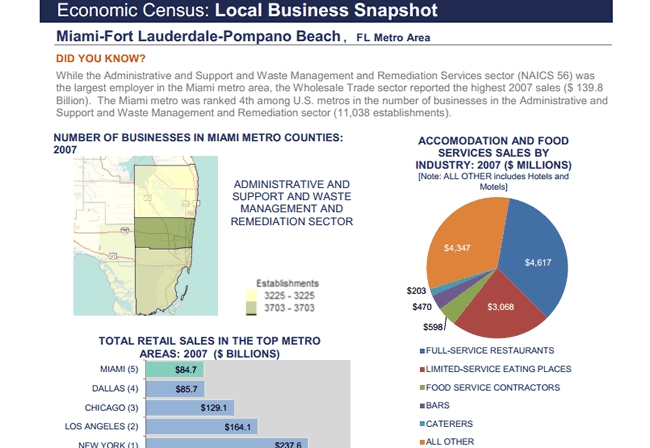How Sequestration Will Lead to Less Informed Budgeting
By
Becky Sweger
Posted:
|
Budget Process,
Transparency & Data
2007 Economic Census Data courtesy of the Census Bureau
In recent weeks, NPP has written about the effects of sequestration on education, transportation, and health programs. We’ve also released a series of state-level fact sheets about sequestration and the Pentagon. But what about the effect of sequestration on government-produced data?
Last month, the Commerce Department estimated that sequestration will cut a total of $46 million from the Census Bureau, delaying the release of critical economic and demographic data and delaying preparations for the 2020 census. NPP recently signed on to a letter from the Census Project urging that the Census Bureau be exempt from sequestration.
So why exempt the Census Bureau? Because the data it generates are crucial for responsible, smart budgeting.
The Bureau’s Economic Census measures American businesses and provides key data necessary for calculating the GDP. But the last Economic Census data we have is for 2007—before the recession. And the annual American Community Survey, which the House voted to eliminate in the FY 2013 budget, provides critical demographic data like poverty, housing units, income, and health insurance coverage.
These data help us understand the effectiveness of government programs and how best to allocate our tax dollars. How did the Recovery Act affect the economy? What areas in the U.S. are most in need of resources? How will the Affordable Health Care Act affect health insurance coverage patterns?
Cutting vital statistics programs is counterproductive: being able to measure the outcomes of our policies and spending is an essential investment.
